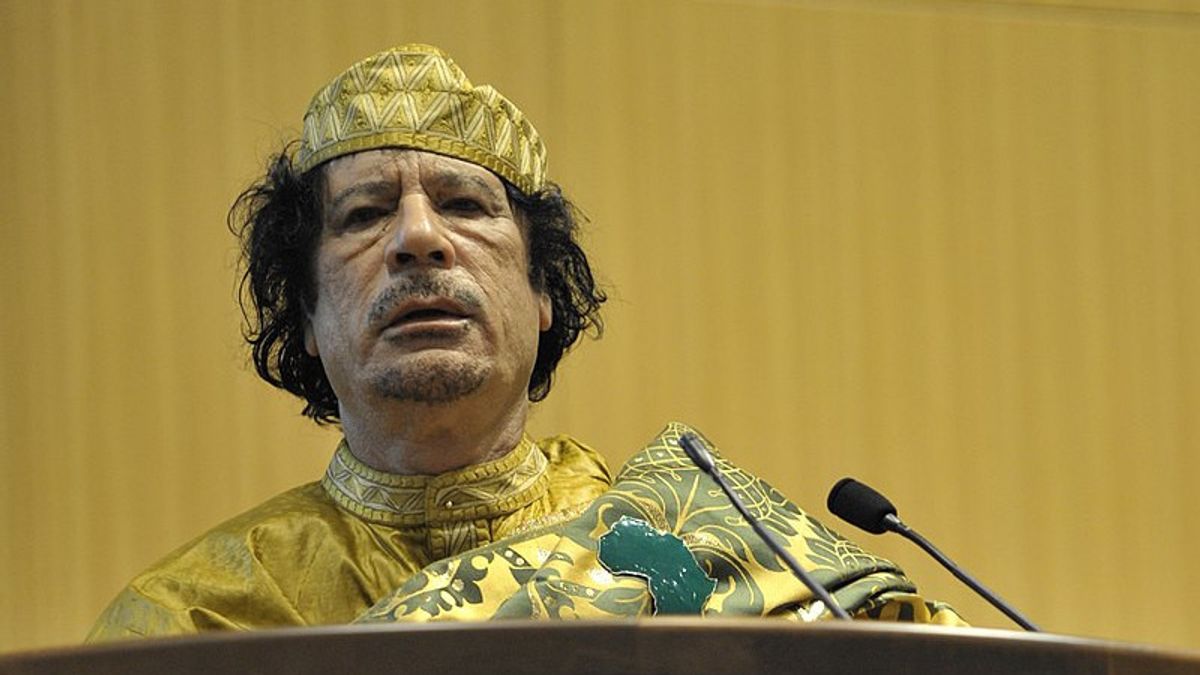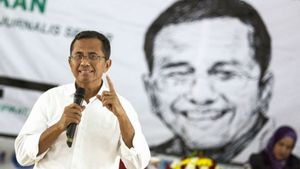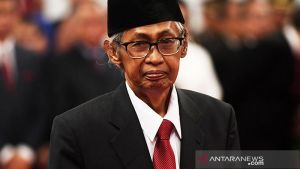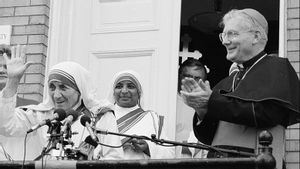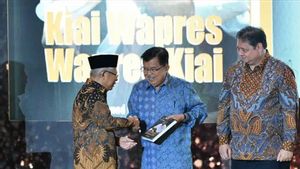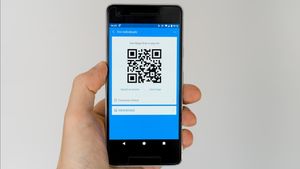JAKARTA Memories of today, 12 years ago, October 20, 2011, Muammar Gaddafi was killed by fire from NATO troops in Sirte, Libya. The death of the Libyan leader shocked the whole world. The era of dictators in Libya is considered over.
Previously, Gaddafi's existence in Libya lasted quite a long time from the 1969 to 2011 era. The power went smoothly without a hitch with repressive recitation. However, the power was disrupted when a wave of ARab Spring protests emerged in the Middle East.
No one doubts the influence of social media. The turmoil of the ARab Spring revolution took place for example. A wave of pro-democracy people's resistance movements that demand political change in the Middle East region spread everywhere.
The movement stems from the action of a group of people not satisfied with the election results won by communist groups in Tunisia. They expressed their frustration on social media. From Twitter, Facebook, to Youtube.
In fact, the frustration is not just a monopoly of a handful of people. The majority of Tunisians perpetuate the same thing. Like a contiguous man. Action plans to take to the streets were launched. Demonstrations emerged everywhere. President Zine El Abidine's regime Ben Ali was successfully overthrown in January 2011.
The incident opened the eyes of other people in the Middle East. Egypt, let alone. The government of Hosni Mubarak is considered ineffective. The figure of the dictator who ruled for 30 years was considered no longer in accordance with the tastes of the times. Repressive too.
As a result, the Egyptian people threw their mistakes on social media and the Arab Spring city reached the Pyramid Country. The protest procession is growing. Instead of resigning, the revolutionary fighters continued to demand Hosni Mubarak to resign. Ulam's beloved pinnacle arrives. Hosni Mubarak was successfully removed in February 2011.
In the revolution, Egyptian civilians succeeded in overthrowing President Hosni Mubarak, who had been in power arbitrarily for 30 years. During that period, Mubarak imposed an emergency law that legitimized the occurrence of arbitrary actions by state security forces, especially the police.
Various acts of violence and human rights violations committed by the Egyptian police are documented and widely spread in the realm of cyberspace (or internet) through the use of information and communication technology (hereafter called ICTs). Before stepping down, Mubarak decided to keep the entire internet and communication network shut down, in order to reduce political dissents, or differences of opinion," explained Amira Woworuntu in the book Transnationalism (2018).
GeloraArab Spring then led to Libya. The tones of dissatisfaction with Libyan leader Muammar Gaddafi were voiced on social media. The sound of dissatisfaction was perpetuated because the power of Muammar Gaddafi was too long.
Every day the demonstration was perpetuated. The voices asked Gaddafi to step back to the surface. However, Gaddafi did not care. Gaddafi actually lightly used his power by lowering military resistance.
The action was like a master's weapon. The turmoil in bloodshed made the UN Security Council intervene in Libya. As a result, the international military organization NATO intervened. Nato then helped secure the Libyan people from the ruling military.
The peak was on October 20, 2011. Nato tried to contain the Gaddafi military group. Gun contact at the Sirte ensued. The result was unexpected. In fact, in one of the military convoy cars there was Gaddafi. He was killed by a NATO bullet attack. News of his death also shocked the world.
SEE ALSO:
At the time of the attack. NATO did not know that Gaddafi was in the convoy. NATO interventions are carried out solely to reduce threats to civilians, in accordance with our UN mandate. As a policy issue, NATO does not target individuals."
We then learned from open sources and intelligence allies that Gaddafi was in the convoy and that the attack was most likely contributing to his arrest. NATO did not divulge specific information about the national assets involved in the operation, "is written in a NATO release as quoted byclobal Campbell in the book Global NATO and the Catastrophic Failure in Libya (2013).
The English, Chinese, Japanese, Arabic, and French versions are automatically generated by the AI. So there may still be inaccuracies in translating, please always see Indonesian as our main language. (system supported by DigitalSiber.id)
